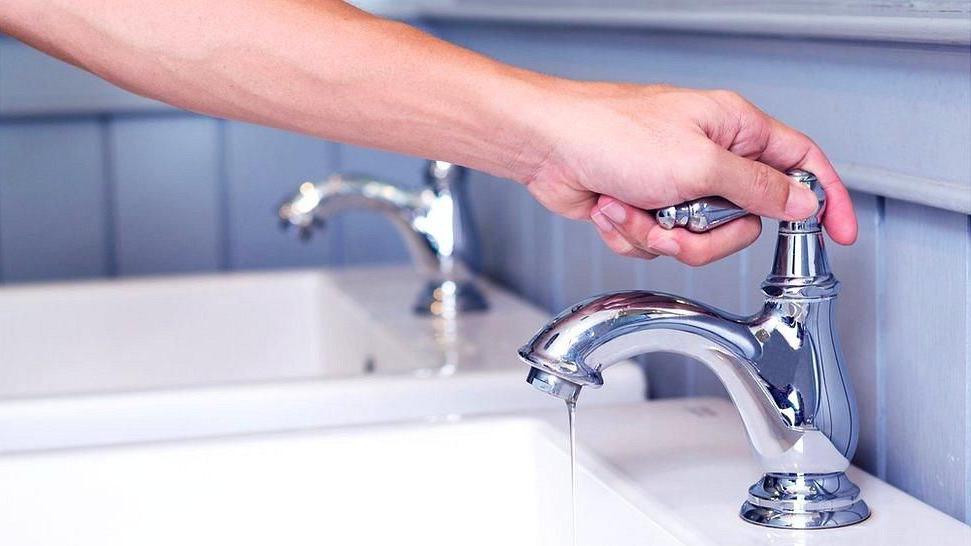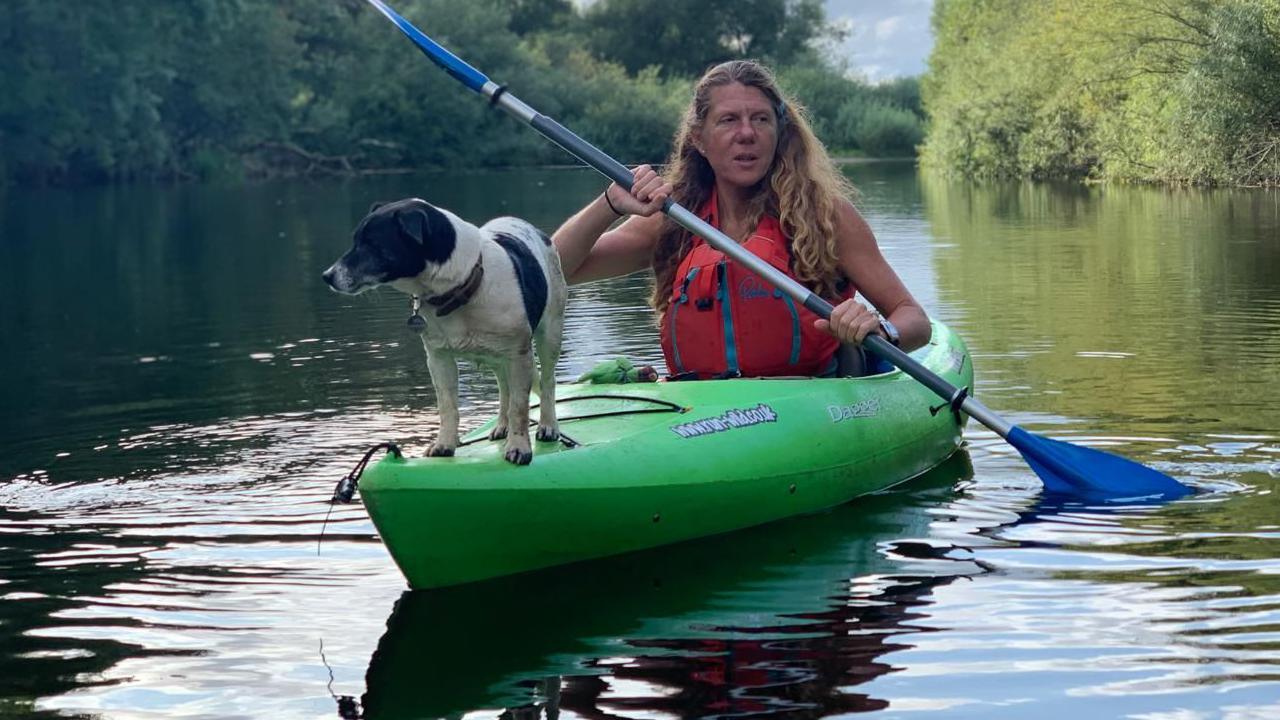Wales to get own water watchdog as Ofwat scrapped

Ofwat, the body that does the job for England and Wales now, is to be scrapped
- Published
Wales is to have its own water watchdog, the Welsh and UK governments have announced.
It comes after a review called for the system for regulating water companies to be overhauled and replaced.
Ofwat, the body that does the job for England and Wales now, is to be scrapped.
The Welsh government will have to decide if a new organisation will be set up or whether Natural Resources Wales (NRW) will take on the role.
But former Welsh Conservative Senedd leader Andrew RT Davies said more powers was the last thing the "failed" quango needed.
Concerns were raised earlier this year about NRW's ability to carry out its existing work to police Wales' environment.
But the chair of the review told BBC Wales the move would mean NRW - which already takes action against water firms for pollution incidents - can oversee the water industry as a whole.
The review said water remained a sensitive issue in Wales because of the flooding of Tryweryn in the 1960s, and that a Welsh regulator would better reflect the priorities in the country.
Whoever takes on the role would have the job of keeping check on Welsh Water, which last year was given significant multi-million pound fines over leakage and other complaints.
Ofwat ensures water companies carry out their duties and are run properly.
NRW already policies pollution - last week it said Welsh Water recorded the highest number of sewage incidents in ten years.
Welsh government climate change secretary Huw Irranca-Davies said he intended "to progress the commission's recommendation for a separate independent economic regulator for Wales".
No date has been announced for the changes. First Minister Eluned Morgan said the "current situation has not worked for the benefit of consumers".
"We only got the report last night, we will need some time to work through it," she said.
"I'm pleased there is recognition that Wales is slightly different and it needs to be understood in a different way."

Angela Jones, 59, described the outcome of Sir John's review as "really, really disappointing".
Known as the "Wild Woman of the Wye" for her longstanding campaign to preserve the cleanliness and biodiversity of the River Wye, Ms Jones put pressure on politicians to take the issue seriously for years.
The Monmouthshire woman said she first began to notice that the water quality in the Wye, as well the nearby River Usk, was deteriorating several years ago. She quickly connected that decline with the release of sewerage during the night.
"In terms of getting rid of Ofwat, I think Surfers Against Sewage summed it up really well. It's like putting lipstick on a pig," she said.
The charity rejected the findings of the water review, calling for more radical reform to the private water sector.
Ms Jones said: "The big polluters out there, the water companies, they are the big problem.
"We have to have the government behind these water companies saying this has got to stop".
'Distinct and unique'
The Independent Water Commission carried out the largest review of the sector since it was privatised, following widespread concerns over pollution, bills and bosses' pay.
Making 88 recommendations, it called for the system that regulates water companies to be replaced with a body for Wales and a body for England.
The review said Wales' water system was "distinct and unique".
"Water holds deep cultural significance in Wales, and it remains a sensitive issue, particularly due to historical events such as the creation of the Tryweryn reservoir," it said.
The village of Capel Celyn was flooded in 1965 for the benefit of drinking water for Liverpool, despite 35 of 36 Welsh MPs having voted against it.
The review said the pressure facing the Welsh water system was different to England, with a higher proportion of land used for agriculture.
It added a new regulator for Welsh water companies could be integrated into NRW, or could be a stand-alone body.
"This would be a significant development, which would ensure that economic regulation of Welsh water companies better reflects the priorities and context of Wales," it said.
The chairman of the review, Sir Jon Cunliffe, told BBC Radio Wales Drive it is "very difficult to have a regulator serving two masters, one in England and one in Wales".
He said bringing NRW's job of inspecting infrastructure together with enforcing the duty of water companies to maintain the network would mean it would "focus on the water system as a whole".
Sir Jon suggested it would make NRW a "more capable" and "powerful regulator".
The review said NRW, which already acts as Wales' environment watchdog, should also have stronger enforcement powers.
Most customers in Wales are served by the not-for-profit company Welsh Water, with some served by Hafren Dyfrydwy, part of Severn Trent.
In abolishing Ofwat, UK government environment secretary Steven Reed promised that households would "never again" face major water bill hikes.
In a statement, the Westminster administration said it would "work closely with the Welsh government to devolve economic regulation of water to Wales".
Irranca-Davies said it was a "once in a generation opportunity to reset arrangements created before devolution".
'Failings'
Expressing concerns about the prospect of NRW taking control, Andrew RT Davies said: "Of the top 20 polluted most polluted rivers in England, five are in Wales - this happened on Senedd ministers' watch.
"Senedd ministers must take responsibility for failings in the water industry in Wales - NRW should not be granted more powers, instead it should be closed and replaced."
Sian Williams, head of operations in north west Wales at NRW, said she was "disappointed" in Mr Davies' comments: "We don't see it as a failed organisation".
The Liberal Democrats Welsh leader Jane Dodds said her party has called for a tougher regulator for years.
"Now the ball is firmly in the Welsh government's court, with NRW having seen over a decade of cuts by Welsh Labour, there are serious questions over whether it is going to be able to take on these new powers and use them effectively," she said.
Sir David Henshaw, Chair of NRW, said: "We support the strategic direction outlined for the industry, including a Wales-specific approach to economic regulation, and further review of associated legislation. It is essential that any such review upholds and strengthens existing environmental standards.
"In recent years, we've worked hard to address declining performance amongst water companies, using the full range of enforcement tools available to us. But the pollution incident and spill reports we published last week highlight the urgent need for stronger and more flexible regulation and enforcement needed to drive transformative change."
Plaid Cymru accused the Welsh government of having the ability "to devolve full control over our water" and having refused to use it.
"Plaid Cymru will devolve these powers to help drive down bills; improve consumer choice and accountability in the water market, and reduce pollution and improve water quality", the party's Delyth Jewell said.